
Nature
11:18, 30-Oct-2018
Chimpanzees react faster to cooperate than act selfishly
Updated
10:39, 02-Nov-2018
CGTN
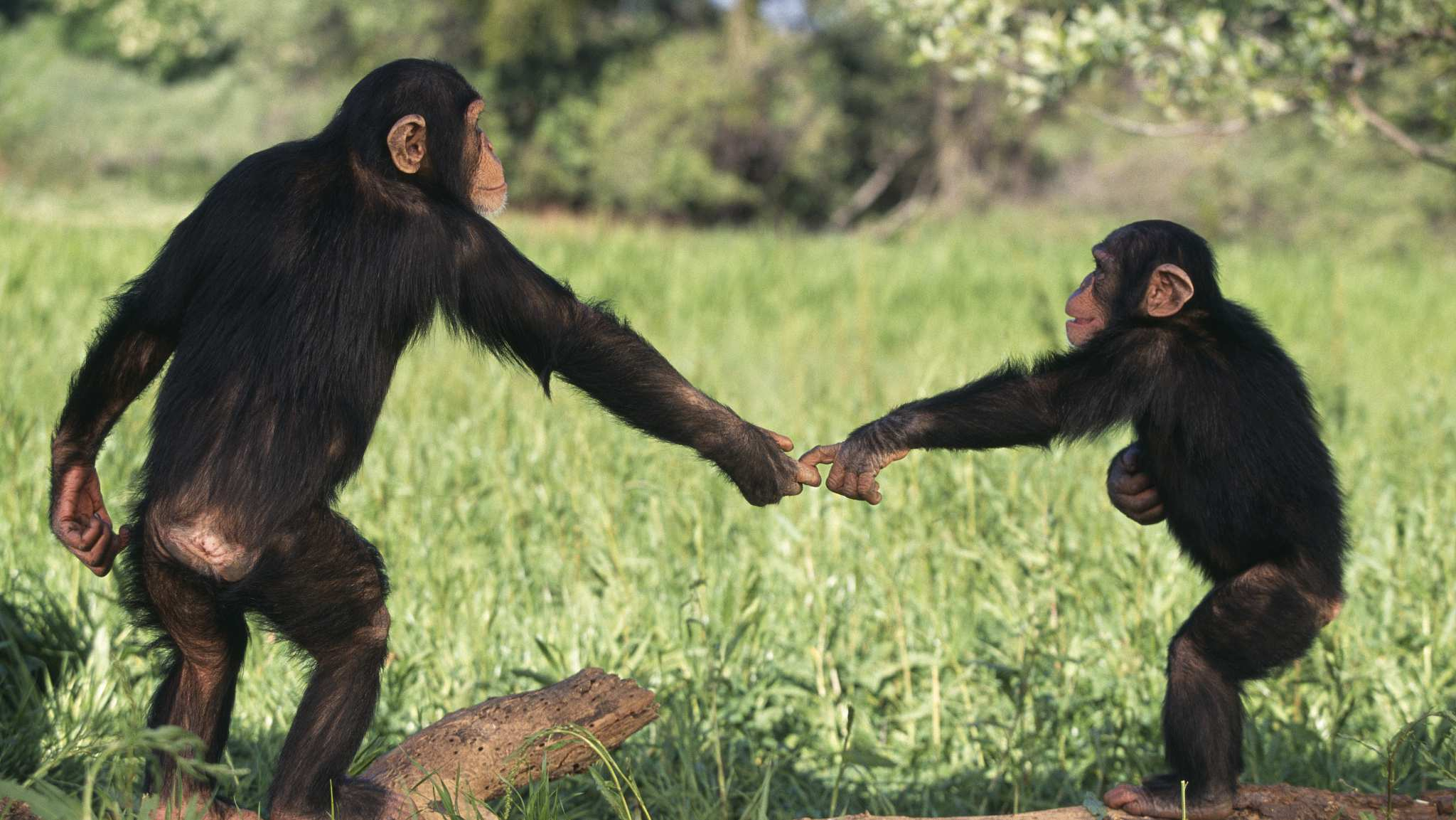
Chimpanzees often make decisions faster that benefit others than themselves, researchers at the University of Michigan (UM) have found.
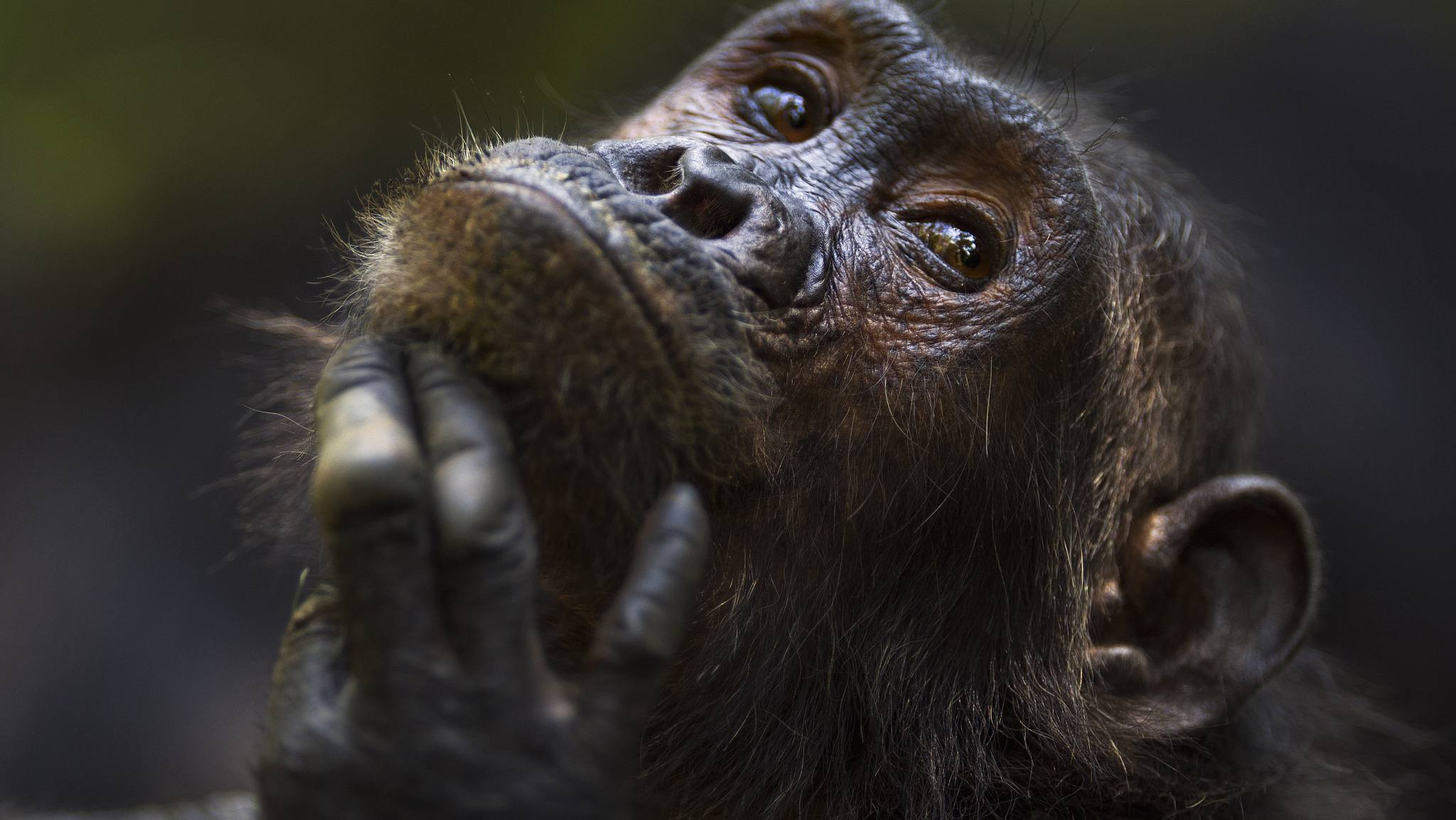
Eastern chimpanzee female Schweini being groomed. /VCG Photo
Eastern chimpanzee female Schweini being groomed. /VCG Photo
For the study, 40 chimpanzees from the Republic of Congo completed tasks that assessed cooperation and self-control, including donation task, helping task and punishment task.
In donation task where the chimpanzee could provide food for both himself and a partner at no cost, or choose to only get food for himself, chimpanzees were more likely to pick the prosocial option if they made a fast choice, as though their gut reaction was to cooperate with the partner. If they took longer to decide, however, they were more likely to keep the food for themselves.
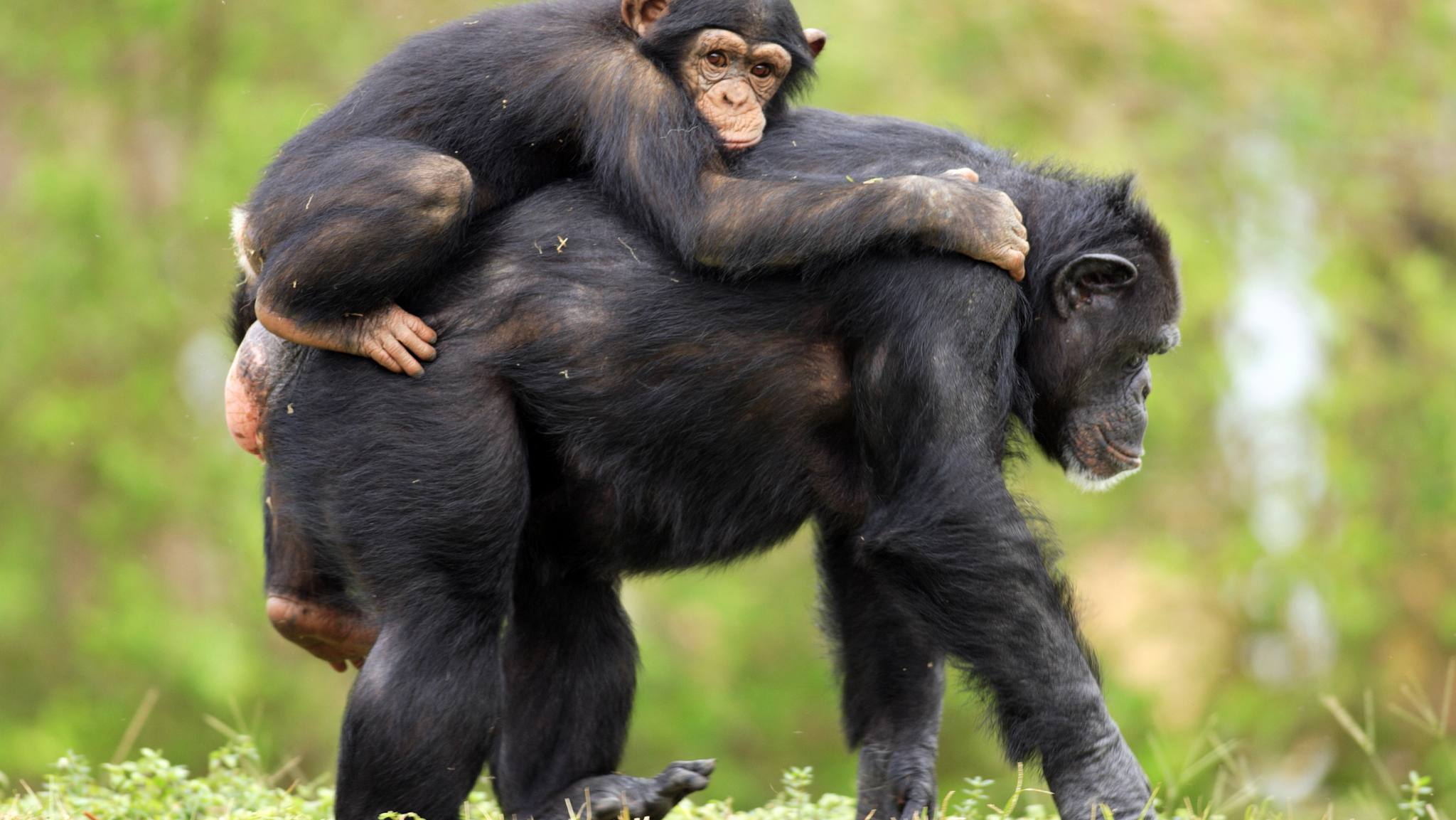
Female chimpanzee is giving a pup a piggyback. /VCG Photo
Female chimpanzee is giving a pup a piggyback. /VCG Photo
In helping task where the chimpanzee could give a partner an object that was out of reach, individual chimpanzees that were more likely to lend a hand were also the fastest to respond to their partner's problem.
In punishment task where the chimpanzee could stop a thief from taking a stolen resource by collapsing a table so the thief couldn't get food, like in the helping study, the chimpanzees who were most reactive to unfairness tended to collapse the table more quickly.
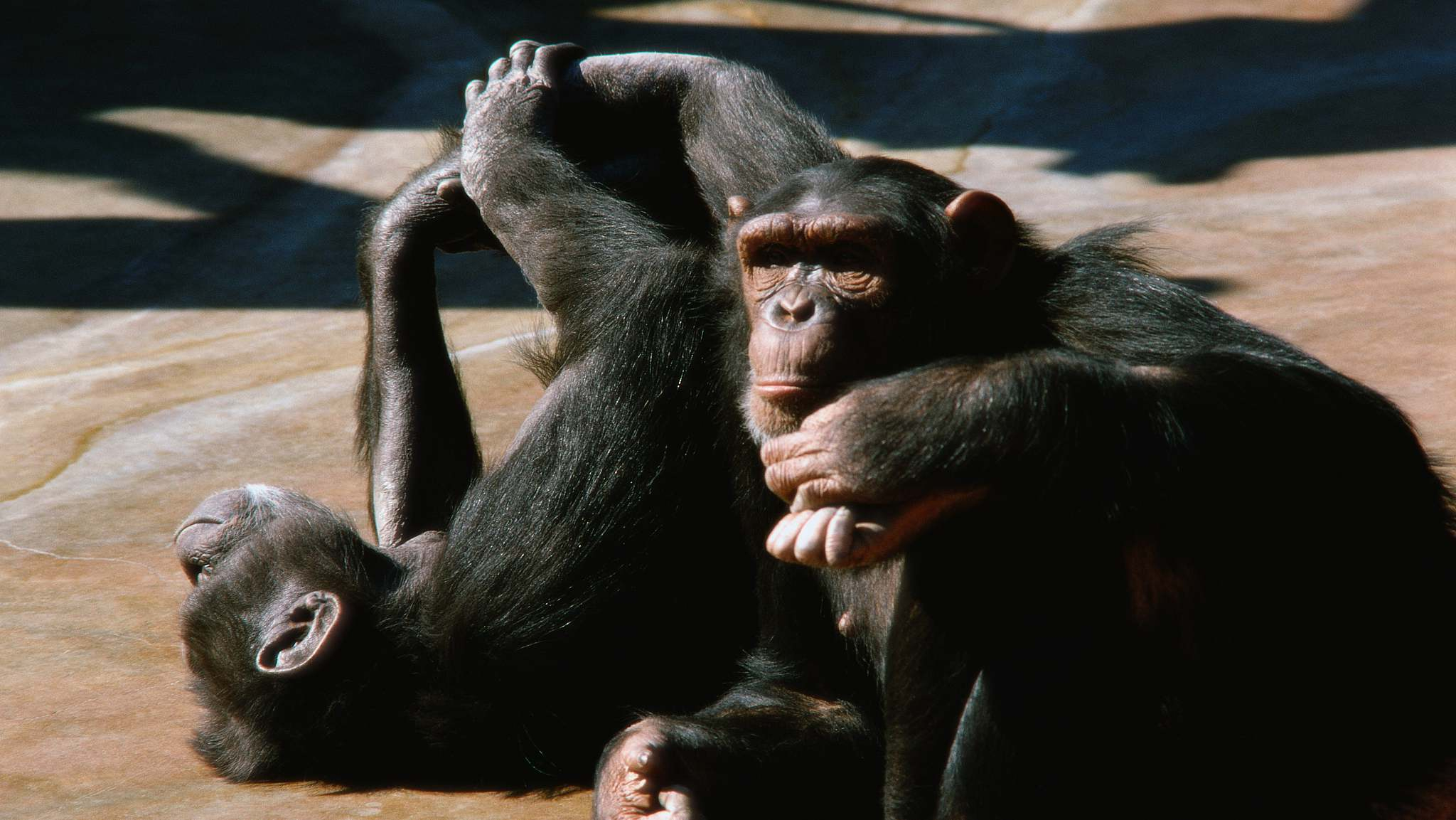
Bathing the sunlight. /VCG Photo
Bathing the sunlight. /VCG Photo
In both reward and punishment contexts, the chimpanzees made prosocial choices more rapidly than those benefiting themselves.
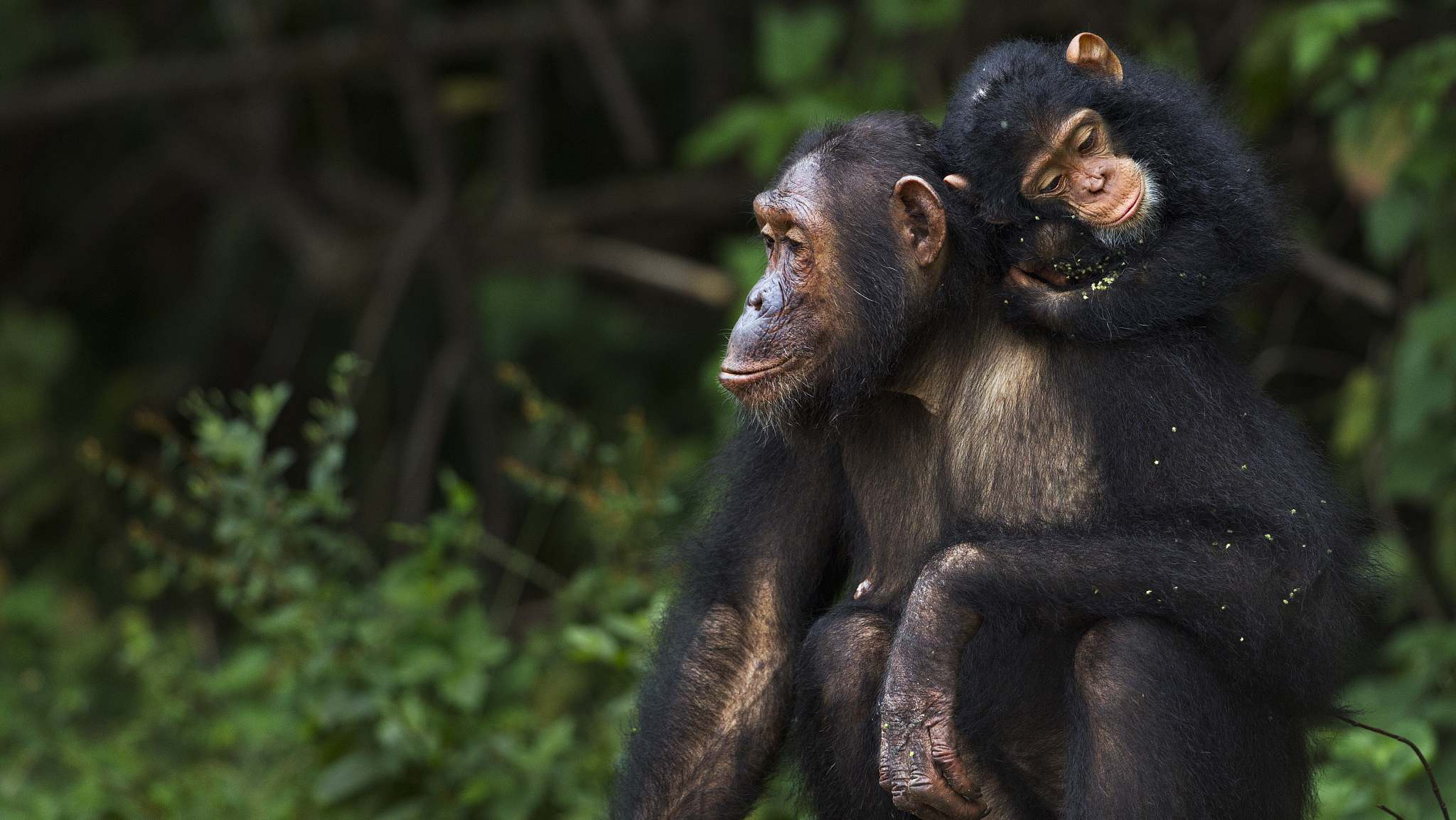
Eastern chimpanzee female Golden, aged 15 years, carrying her infant daughter Glamour, aged 21 months, on her back. /VCG Photo
Eastern chimpanzee female Golden, aged 15 years, carrying her infant daughter Glamour, aged 21 months, on her back. /VCG Photo
"Ultimately, our results show that chimpanzee cooperation involves several cognitive mechanisms that parallel those seen in humans," the researchers wrote.
"Chimpanzees are an important comparative model for human cooperation," said Alexandra Rosati, UM assistant professor of psychology and anthropology and the study's lead author.
The findings have been published in the current issue of Psychological Science.
Source(s): Xinhua News Agency

SITEMAP
Copyright © 2018 CGTN. Beijing ICP prepared NO.16065310-3
Copyright © 2018 CGTN. Beijing ICP prepared NO.16065310-3